|
No. Not every example of a spy novel has the word 'Spy' in its title.
Some use the word 'Agent' instead. But seriously... it does seem as though publishers of espionage fiction have stopped crediting readers with the initiative to identify a spy novel as a spy novel unless it literally spells it out and, as the ads for a certain brand of wood preservative always say in the UK, 'does exactly what it says on the tin'. Now let me be clear, I'm not blaming the authors, the editors or – ironically – the agents. My guess, from personal experience, is that this trend (if it is a trend) emanates from the dark arts practised by marketing departments, who will always be quick to cite metrics, analytics and that deathblow to interesting writing, Search Engine Optimisation, to support the deep dive down to the lowest common denominator. But here's an example. See what you think. Alex Gerlis is one of those authors of spy fiction who is touted as a successor to John le Carré. His first book series, Spy Masters, comprises The Best of Our Spies, The Swiss Spy, Vienna Spies and The Berlin Spies. His next, Prince of Spies, Sea of Spies, Ring of Spies and End of Spies. And perhaps that really is the end of spies, because his current series so far comprises Agent in Berlin, Agent in Peril and Agent in the Shadows... ah, collectively known as the Wolf Pack Spies books. Or you might choose Tom Bradby's latest novel, Yesterday's Spy. Or, as I have just done, Manda Scott’s move into WWII espionage fiction, winner of the 2019 McIlvanney Prize A Treachery of Spies. Or perhaps continue reading the novels of that stalwart of the genre, Alan Furst, who used to publish books called things like Dark Star and The Polish Officer but whose more recent titles have included The Spies of Warsaw and Spies of the Balkans. But hang on, I hear you cry, le Carré himself was responsible for The Spy Who Came in from the Cold and Tinker Tailor Soldier Spy (and, by extension, all the imitative titles, like Len Deighton's Twinkle, Twinkle Little Spy a year or so later). Yes, but le Carré published something like 26 novels, of which four had spy/spies in the title. Ian Fleming 13, plus short stories, with only a single example (yep, nobody did it better). Helen MacInnes 26, no spies, one agent. Anthony Price 19, no examples. Eric Ambler something like 18 novels, with only one example (Epitaph for a Spy), and an anthology titled To Catch a Spy. And call it 27 actual Robert Ludlum novels and 19 for Tom Clancy, with absolutely no examples between them. Then let's look at the aforementioned Len Deighton. Yes, there's the example above, together with Spy Story and (another) Yesterday's Spy. And there's the clunkily branded Spy Hook, Spy Line, Spy Sinker series, which certainly feels like another progenitor of the current title trend (if it is a trend). But that's it, out of 27 novels or so. And The IPCRESS File alone absolves him from Title Shame. So is it a trend? I don't know. Among currently active writers in this genre, Joseph Kanon has contributed only The Prodigal Spy out of ten novels, Charles Cumming A Spy By Nature and A Divided Spy from 11, and Mick Herron nothing save a 'spook'. Added to which, you could very well say it all started with The Spy; or, A Tale of the Neutral Ground by James Fenimore Cooper (1821) or The Secret Agent by Joseph Conrad (1907). Not to mention all those I-Spy books I grew up with...! But my impression, even if only half-formed and half-substantiated, is of a gradual drift towards titles that contain the word Spy just for the sake of it and little else besides – sacrificing both nuance and drama for the optimised search and the quick, easy buck of the blatantly, blandly, boringly obvious. And surely, unlike wood preservative, we want our spies and spy stories to be none of those things. My first spy/action thriller – perhaps foolishly not including the word 'spy' but very definitely echoing or evoking titles from the likes of Desmond Bagley and especially Robert Ludlum – is called THE BORODINO SACRIFICE and is available here. Incidentally, the late Martin Amis once recounted how when he and Salman Rushdie were in hiding from the Iranian fatwa, they passed the time by playing a game involving giving Shakespeare plays Robert Ludlum-style titles. Apparently Rushdie won with his for Hamlet: The Elsinore Procrastination
2 Comments
OK, first things first... I'm not speaking from any place of authority, just picking things up as I go along, but by 'comps' here I mean comparable or comparative or comparison titles – the ones we've been told to provide in our query letters to literary agents, yes?
And I don't know about you, but I found it very hard to come up with two or three examples of published novels that are sufficiently like mine to be cited as valid comparisons. Until, that is, I realised something... The novel(s) that I want my novel(s) to be like are novel(s) that I like but are not necessarily the novel(s) I'd say my novel(s) are like because the novel(s) I'm going to say my novel(s) are like are not necessarily novels that I like. (And breathe...) Or to put it another, less feverish, way: I used to get hung up on thinking that my comps should be the beloved novels that inspired and influenced my writing, the novels I dream of one day seeing mine alongside in a library or maybe a favourite secondhand bookshop. Whereas, of course, one's comps should be contemporary examples of novels whose readers might be tempted to pick up yours if they spotted them alongside their customary purchases in a modern bookshop, especially one like Amazon. That way, you can show an agent or a publisher that you've thought about where yours would fit in the market – and that you're familiar with the market – even if you think (as I do) that yours offers that market something different or (God forbid) that you could do it better. I think that's a valid way of looking at it, don't you? Of course you need to understand what works and what might not work so well for today's readers. But surely it's still OK to be inspired in the first place by other, older titles than the ones you use as comps? I mean, if your inspiration comes from a novel you found on the bestsellers list a year ago, well, let's just say I'd hate to see you at your uninspired... Now, in my case there's an added complication. I don't necessarily have a single target audience. But I can't be alone in this. Isn't that why there are all those easily mockable 'Finding Nemo meets Last Tango in Paris' type pitches? And surely that's why they ask for two or three examples of comps...? So anyway, I reckon I've come to terms with why I might have to appeal to readers of x, y and z – and why I might be asked to specify who I think x, y and z are. I just thought it might be useful to share the way that I've come to terms with it. Which is by holding onto my motivation to do it differently. And maybe even better. I was late to the party with Sofia Coppola's Marie Antoinette, having only seen it recently on Netflix. But what a party! And what an unexpectedly poignant effect she achieved by linking the gaiety and naivety and anxiety and immoderation and sheer bloody fatedness of the ancien regime to the experience of any teenager who has had to grow up – and especially a teenager who did so in the late 70s/early 80s. The astonishing sequence in the movie that begins with Bow Wow Wow's I Want Candy ends with a Kevin Shields remix of their Fools Rush In that is so fragile and intimate we feel that we have somehow tuned in and are hearing her sing it in her own head. But here's the thing: I think I can hear us doing the tuning-in too; and I think I've heard that before. It's late October 1981. I'm sitting at the counter in our little kitchen in Hurst Park, listening, with Mum, to the charts on her old tube radio. I presume I'm taking a break from my soul destroying A-Level homework. Or maybe it's half-term. Mum is preparing the evening meal before she goes to pick Dad up from the station. The dog is mooching around at our feet. And, hard though it is to believe now, we're listening to Laurie Anderson's O Superman. I'm looking at the names of faraway and fantastic places on the tuner. I'm checking the (more or less kaput) glimmer of the magic eye, tentatively poking my finger into its little votive niche... and what I'm getting, now, right now, is the same kind of indefinable ethereal resonance that's there in Sofia Coppola's movie. It's there in the Laurie Anderson piece, of course, of course, but also in the opening of its neighbour in the charts this week, Altered Images' Happy Birthday. It's there, especially, in a brand new entry to the charts, OMD's Joan of Arc, and it's even there in that deeply odd cover of It's My Party that's hanging on at No.1. Not a message, not a signal, but a carrier wave, maybe. The promise of picking up something from the other side. Hello, this is your mother, says Laurie Anderson. Are you coming home? And then, for God's sake, there's Andy McCluskey singing: say the right words and I'll be coming through... So what is this random little time-slip telling us? That a bit of 80s reverb in a movie is enough to spark an almost supernatural Proustian rush in a basket case like me? Possibly. But also, I think, that there's always a way out of the echo chamber. That in supposedly familiar stories and even memories might still be hidden stranger truths, deeper layers and bigger meanings. That you have to be brave and ever so delicately retune your sensibilities. That even without moving on to fresh pastures, there are new revelations to be found out there, in the past, in the ether. That it's the job of creatives, through fiction, through non-fiction, through music and magic, though a whirling jumble of the lot, to reach for them, like Sofia Coppola did. And our job too, to sing their praises for even attempting it. Edited version of an original photograph by: mattbuck (category), CC BY-SA 2.0 <https://creativecommons.org/licenses/by-sa/2.0>, via Wikimedia Commons
I don’t want to arse drop (I do) but this old sofa on which mine is planted has seen many more illustrious posteriors in its day, including that of the original Dumbledore, the late great Richard Harris, back when he was getting my father arrested outside the Britannia pub in Kensington. And the reason I’m thinking of him and his arse now, in particular, is because of a half-arsed theory I’ve been half-formulating (and half-shooting-down) which is this: Movie dialogue is more memorable than dialogue in novels. I posited this in the Twitter #WritingCommunity a few weeks ago and have had some fascinating discussion, as well as plenty of suggestions for novel dialogue that does (or at least appears to) feel every bit as sharp as movie dialogue. But let’s start at the beginning, because you never know, it may resonate with someone. I was reviewing an exchange between two characters in my first Chasing Mercury novel, The Borodino Sacrifice. It was dialogue that I wanted to be both throwaway and yet cleverly emblematic of the whole book. Cutting out the tags and so on, it was this: “You don’t send people into action without telling them what you’re planning on doing.” “Don’t be naive, Bill. That’s exactly what you do.” Leaving aside the fact that I’ve just realised how heavily influenced by The Godfather that is, I knew it wasn’t quite what I wanted. What I want, as Michael Corleone would say, is a line like Yul Brynner’s in The Magnificent Seven: “I’ve been offered a lot for my work, but never everything.” Or like Bogart’s in Casablanca: “I remember every detail. The Germans wore grey. You wore blue.” Or like Errol Flynn’s in The Adventures of Robin Hood (to the accusation “You speak treason!”): “Fluently.” Or, yes, like: “Leave the gun. Take the cannoli.” In other words lines that seem to sum up the characters and the story in one, and a lot less ponderously than that overwritten speech in Taken, when you just know the baddie would have hung up on him halfway through... And then there’s the kind of dialogue that you’d put on the poster: “Houston, we have a problem.” “With great power comes great responsibility.” “You’re gonna need a bigger boat.” Etc., etc., etc... (This is not a post about movie taglines.) So... that was when I got to wondering: Hey, how come I can’t immediately come up with a comparable example of a memorable line from a novel, that is dialogue not narrative...? Because all that “Last night I dreamt I went to Manderley again”, all that “Call me Ishmael”, all that “It was the best of times, it was the worst of times”, and yes, all that “Reader, I married him”... you remember it as speech, because a great author was addressing you personally, but it ain’t dialogue, none of it. You can’t have “It is a truth universally acknowledged...”; you’ll have to make do with “I could easily forgive his pride, if he had not mortified mine”. And sure, that last one is pretty good anyway, but couldn’t it have been tightened up a bit? Isn’t it the case that a lot of these really good authors seem to spend more time getting the key narrative moments snappy or emblematic than they do their characters’ dialogue...? Which brings me, possibly by way of “A fire,” he cried, “in the name of human charity! A room and a fire!”, to Dumbledore the Grey (and yes, we’ll come onto him as well...). You see, talking to my youngest, I’ve discovered that some of the Harry Potter quotes that are attributed to the books (and an awful lot of those from The Lord of the Rings) are actually the somewhat snappier ones from the films. A case in point. Here’s one you could put on a poster: “It takes a great deal of bravery to stand up to your enemies. But a great deal more to stand up to your friends.” We all remember that, from book and film, eh? Except in the book, what Dumbledore says is: "It takes a great deal of bravery to stand up to our enemies, but just as much to stand up to our friends.” I don’t know, it’s a subtle difference but that seems a little bit... flabbier. And as for those times when your memory (and the Internet) tells you it’s from the book but it’s not, how about: “Even the smallest person can change the course of the future.” Nope, not in the book. “A boy’s best friend is his mother.” Nope. Frequently attributed to Robert Bloch (who can certainly have “All of us go a little crazy at times”, so credit where credit’s due) but actually from Joseph Stefano’s Psycho screenplay. Now, clearly there are plenty of great, quotable lines of dialogue in novels, including the one above. Khan knew it when he spent most of that movie quoting Ahab (whereas Kirk and Spock fell into the aforementioned trap of quoting narrative from A Tale of Two Cities). Gatsby, Gollum and Sherlock Holmes have very distinctive voices that spring to mind. And in 1984, O’Brien’s “If you want a picture of the future, imagine a boot stamping on a human face – forever” is such a perfect poster line I swear I’ve seen it used by the Conservative Party recently. I definitely quote Alice’s “Curiousier and curiouser!” regularly in my everyday life (or variations thereof); I bow to the suggestion of the opening of Charlotte’s Web “Where’s Papa going with that axe?”; and I can’t argue with “Get busy living or get busy dying.” Other great examples? Atticus Finch saying: “The one thing that doesn’t abide by majority rule is a person’s conscience.” Don Corleone (of course) saying: “I’ll make him an offer he can’t refuse.” (Although in the movie Brando mumbles “I’m gonna make him an offer..”) Then there’s the English Patient’s “All I ever wanted was a world without maps,” lots of The Little Prince, a lot more of Alice, a large helping of Terry Pratchett, and I’m certainly not going to attempt to argue with Catch-22 (“That’s some catch...”). Meanwhile, as others have pointed out, if you want viral dialogue, there’s the likes of the Bible and The Hitchhiker’s Guide... But the former isn’t a novel, whatever some people might say, and the latter, well, it was a radio series first, which means it was constructed as dialogue right from the start. I think that’s outside the remit of this debate, so that’s adieu, adieu, adieu to Shakespeare too. But now that I’ve thrown out the great monologues, I will pause here to consider other, shorter bits of internal dialogue. Like when Clarice Starling sees Hannibal Lecter in the book and says/thinks to herself: He's a cemetery mink. He lives down in a ribcage in the dry leaves of a heart. No. I can’t allow it here. But it’s f**king brilliant and I’ve never forgotten it. So anyway, I’ve basically disproved my own argument haven’t it? There’s plenty of cracking dialogue in novels, and just because the narrative offers us a great deal more, that doesn’t mean the dialogue isn’t just as good, does it, Dumbledore? I still don’t know. There’s something about the movie lines (the good ones at least). Maybe, as one contributor to the thread pointed out, it’s what the actors are bringing to them. Or, as someone else suggested, it’s because movies are a common experience – we share that moment differently from how we share what we read. And/or, as I tend to think, the screenwriters have often made the lines work that little bit harder, because they don’t have the luxury of supporting narrative, not in the same way as novelists. Which may or may not be a lesson, but was certainly fun thinking about. Thanks to all. P.S. One further thought. Twitter can help. For example, using the weekly #1linewed prompt and getting an extract from my WIP(s) down to 280 characters often means tightening up some dialogue that I was previously happy with. Plus you get to read other people’s better efforts. We’ve all encountered books that feel the wrong length. A supernatural mystery that plods on a hundred plus pages past the predictable twist. Or the third instalment in the Cemetery of Forgotten Books. I've read thrillers with a protagonist named Jack that err similarly on the side of brevity. And others, featuring a different Jack, that are positively tantric about getting to the finish line. Yet with some novels, the setting's created, the story plays out, the characters intrigue and develop in a way that seems so effortlessly right you don't even notice how long or short the book is. If it never occurred to me Gatsby was a famously slight 47K, nor did I spot that The Corrections was getting up to – depending on which blog you read, or maybe which edition – 175-195K and therefore into Moby Dick territory (which certainly does feel like it). With plenty of others you're quite aware they're doorstoppers but that's OK because you never want them to end. Isn't that how we're meant to consume a lot of SFF? At the same time, most of us will have received well-meaning advice, or been on those blogs and forums, or subscribed – for our sins – to the YouTube channels, and heard over and over how no one will take your manuscript seriously unless it falls within the accepted word count range for each genre. And that you can forget those outliers, those exceptions to the rule, because if you're a first-time writer (as if there were such a thing), you'll never get to be one of those. And... fair enough. That's your industry. I accept it. It may be particularly discouraging for the first-timer, for the unpublished writer, let's say. But I get it. Tough love. It's meant to be. So no, this isn't a rant. Nor is it offering any insight into what the market is looking for (I'd just be copying from the same websites you'll find if you Google anything about word counts – seriously, there is so much out there). No, what this is is a question, or a series of questions and attempted answers, drawn from something that I can talk about with the authority of experience, namely the difference between the length of the first novel in my Chasing Mercury series and the likely length of the second. Book One is around 115K. Book Two looks like coming in at 80. How did those word counts turn out so different? Is there a good reason for it? And if so, does it suggest that yes, there is a natural length that each individual story needs to be, in order to 'breathe'? Book One, The Borodino Sacrifice, was my first proper attempt at a spy/action historical thriller and as a result, even after a few drafts, I could tell it was overlong and overwritten. The truth is, it was up around 145K, and the received wisdom is that only SFF or full-blown historical sagas can be that sort of length, and then only from established authors. (Longer books cost more to print and bind and store and distribute and they’re not going make that kind of investment in an unknown. It's hard to argue with the logic of that. Although I presume there's a discussion to be had about ebooks.) Anyway, after doing the Googling, getting horrified, Googling some more, then disingenuously elbowing my novel through into a historical category (although I’m not sure the postwar espionage environment really counts), I had it in my head that there was an upper limit for a book like mine, which was – being generous – 120K. Sure, I understood that a thriller of such a length might put off overburdened agents or publishers, who would gratefully consign anything above 80K, or 90K, or 100K to the trash, but I hoped that others might just give it the benefit and read on. So I cut it down, and yes, losing 25K of those precious darlings really helped to tighten up the story and pick up the pacing. But I knew that I was reaching the limit of what I could do without professional editorial input. Possibly I was reaching the limits of the story itself. Any further cutting line-by-line and the whole tone and voice got muddied. Any further cutting of scenes or characters and I felt I was losing the narrative's vital organs – and for what? No, no, 120K would be the limit. Or, after one last pass to trim any infodumps or lengthy descriptions that had survived the Great Reaping, 115K. Now I come to the point of this. Because as I documented in my last blog, I haven’t waited to get Book One published before embarking on Book Two (chance would be a fine thing, etc, etc.) No, for various reasons that I might break down and analyse another time, I’ve been working on The Herrenhaus Forfeit these past few months. Like Book One, it took a while to find its natural pace and shape, and it has thrown up some surprises along the way – minor characters taking unexpected turns, etc., yes, I know… oh, and the realisation that what it needs to distinguish itself is a big bloody heist drama sitting right at the heart of it. But I have been working to a plan. I’ve known where and when the story pivots in the middle, and I’ve just reached that point in the first draft – bang on target at 40K! But hang on... bang on whose target? Ah, yes, of course. I didn’t want to admit it, but I knew I wasn’t going to put myself in that position again: wearing a fixed smile as I listened to people tell me that 80K was really the perfect length and 120K the absolute upper limit and honestly that's pushing it... Especially when those people included me. What amazes me is that I took that on board and have written – conceived, constructed, peopled, narrated – the story accordingly. And OK, the second half of the book might end up being longer or shorter, but not dramatically so, because it really does need to be this length. I can’t imagine it having some of the epic or world-building elements that made the first book feel like it needed to be longer. And it’s lean enough that I certainly can’t imagine it getting any shorter. So until a professional tells me otherwise, I think it has a natural length. And, by implication, maybe, if I half-close my eyes and suck in its tummy, so did the first book. One day, perhaps governed by different objectives, so will the third. That was what I wanted to say. Perhaps to reassure myself. Perhaps to reassure others. I had an exchange on Twitter with another writer who had encountered something similar with word counts in her series of novels. I was also going to include a footnote or a postscript relating to my not-entirely-frivolous confession that I'd tried to justify the 120K target by pretending my book was a proper historical. But two further, final thoughts occur on that subject... Firstly, are these generic terms really set in stone? I'm already mixing two when I say mine are espionage/action thrillers. And it seems to me that some books like this, set in the WWII period, feel more 'historical' than others. Some use historical conventions like a frame story while others plunge you straight into the period as though it were the present day. Some of the former use that structure to depict the past as another country, while others don't. Some of the 'plunge right in' lobby read as so modern you can feel the author struggling not to give the characters cellphones and you wonder why they didn't set it in Assad's Damascus instead of Nazi-occupied Paris. Others are more convincing. Secondly, leading on from that: if we accept that a lot of SFF and purer historicals are given the leeway of extra word count because they have more heavy lifting to do in terms of creating an unfamiliar setting, doesn't it follow that some hybrid historical thrillers need more space than others? Although The Borodino Sacrifice visits Paris and Berlin, the main action takes place in the less well-trodden territory of the former-Sudetenland Czech border zone during the first, fluid phase of postwar occupation by east and west (a phase that even many history books gloss over or get wrong). Am I not permitted some world-building word count for that – compared with, for example, all the books set in occupied France and inspired to varying degrees by the well-known stories of the female F Section agents? (By the way, my Uncle John, he of The Typewriter That Went To Meet Lucky Luciano, was brought in to do uncredited script doctoring on Carve Her Name With Pride. He had some stories to tell.) What's that you say? 1984 is supposedly something like 90K (other confidently quoted word counts are available) and it's hard to imagine heavier-duty world-building than that? Yeah, but Orwell never wrote a sequel did he? It seems to me that the first book in a series might well have more lifting to do. Maybe 1985 would have been shorter, the same way The Herrenhaus Forfeit is. Or, maybe, I had just learned my lesson by the time I started writing Book Two – and I still can't learn my lesson about Book One. One thing's certain. The word count on this post is high enough. In another life, André Deutsch took an interest in a manuscript of mine, an overwritten historical epic called On The Breakwater. Ultimately, nothing came of it - I had no agent to fight my corner, nor to pull me up on some of that youthful excess. Publishing moved on without me. In 2020 I took my first, tentative steps into the world of querying for nearly a quarter of a century. I considered easing the tension by blogging about it; but others have done that with far better insights and much more interesting stories to share. Added to which, of course, these are very early days in the process, I don't want to say too much, and when did writing about anything really ease any tension for more than the time it takes to re-read it to yourself? Instead I thought I'd talk about a personal quirk that is tangentially related to the querying process. It's an example of a self-imposed, possibly self-damaging restriction that might just mean something to someone else - especially an unpublished someone who has set themselves the task of writing a series of books. Maybe there's even someone out there who can stage an intervention and save me from myself... So here it is. I too have moved on from On The Breakwater and the other sub-Wilbur Smith effort based on the exploits and unexplained disappearance of my German Military Settler great-great-grandfather, the unfinished Waiting For The Dawn. In recent years I've been developing the potential series of post-WWII spy/action thrillers that I've banged on about elsewhere on this site. As an aside, I've also worked on a collection of short stories loosely based around a common theme, which I told FlashBack Fiction about here. And I had the brilliant idea of putting an extra story in the back of the (as yet unfinished as well as unpublished) collection that would both stand alone and function as a 'missing' chapter of the (at the time unwritten as well as unpublished) Book 2 in the Chasing Mercury series. That way, anyone reading the stories would be pointed towards the novels - and anyone reading the novels and then the stories would discover this Easter egg that filled in a bit of the narrative (is honestly what I thought). With me so far? Now, 2020 comes around, lockdown comes around, and I find the time and nerve to start sending out those first few queries for the newly-finished Book 1, The Borodino Sacrifice. And suddenly, for the time being at least, it really is finished, there's no sense fiddling with it any more while the sample chapters are (in theory at least) being read, and given that I told the agents it was the first in a potential series, wouldn't my time be better spent pulling together those ideas for Book 2...? The Herrenhaus Forfeit is born (you heard it here first). Which is all fine and dandy - except now I find myself having to work around set-in-stone plot points from Book 1 as though it had been published, even though it hasn't. OK, OK, that's a fun challenge and surely all part and parcel of this series-writing malarkey. But what about the short story (which was also a genre-crossing detective story, by the way)? That introduced some important plot points for Book 2 before Book 2 was even written. But it's only a throwaway Easter egg in an UNPUBLISHED collection, so surely I can retcon what it says...? Nope. That would be cheating. What I can't work out is whether this is useful self-discipline, honed over decades of commercial trade-offs, that will help me press on and get Book 2 functioning in a fraction of the time that Book 1 took... ...or completely effing bonkers. 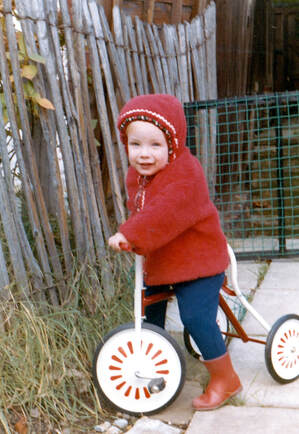 I've got a trike, you can ride it if you like. I've got a trike, you can ride it if you like. The semi-lockdown semi-continues with still-quite-quiet days and ever more evocative dreamscapes. The latter, sparked I suspect by the becalmed timelessness of the former, seem increasingly to be drawn from my childhood. So this week, again, the inessential journey is essentially backward-looking – but not, now, in a strictly visual sense. When I was small, we lived in a crumbling ground floor flat on a slanting, curving road on a hill in North London. A new rock group named The Pink Floyd were our very near neighbours and I recall hearing the music most days as my father pushed me past their house on our way to Highgate Woods or Waterlow Park. Towards the end of our stay there, I believe Nick Mason recorded the band’s roadie, Alan, eating his famous Psychedelic Breakfast in the kitchen and I like to think that those ambient sounds – birdsong, a passing jet, pastel-painted traffic echoing in the Archway cutting – I too heard that lazy spring morning in 1970. Muted, you see. More innocent (if you half-close your eyes, at least). And more than a bit reminiscent of the strange new semi-locked-down world of summer 2020. When we left London shortly after that, it was to relocate to the suburbs and a new housing estate that had just been built on the Thames, more or less directly on top of the former Hurst Park racecourse. The sounds I summon from that place and time – like the wake of barges slow-clapping on the walls of Fred Karno’s fantasy island in midstream – have fuelled many of the memories that inspired my coming-of-age-(with-possible-alien-invasion) novella, 76. And now – without relinquishing the vertiginous perspective of loss - what soundtrack best recaptures that first navigation, by canoe, no less, of an adult world log-jammed with the debris of a banjaxed age? (Converted MTBs still lined the banks; Stanley Kubrick’s droogs had just trashed the Karsino, for bog’s sake!) That would be a little instrumental piece by another of our unlikely neighbours. In the mid-80s, the only member of Pink Floyd who hadn’t lived along from us in Stanhope Gardens came to record his next album directly across the river from us, on what had once been Fred Karno’s houseboat. Ironically, the first Roger Waters-less Floyd album begins with its own watery ambience. On the first track, Signs of Life, Dave Gilmour gives us the pulling of oars on a small river craft, the creak of rowlocks and the lapping of the river. And while those particular samples probably weren’t even taped on the reach outside the Astoria - and with my canoe long gone by then it’s almost certain that it can’t have been me out in a boat on the river that day - all the same, subliminally, serendipitously... And emotionally, too, because here is a final Pink Floyd connection for you: Syd Barrett chose a quote from The Wind in the Willows for the title of the band’s first album, and I chose this quote from the same, beloved book for my father’s funeral; his name was Alan as well. The Mole was bewitched, entranced, fascinated. By the side of the river he trotted as one trots, when very small, by the side of a man who holds one spellbound by exciting stories; and when tired at last, he sat on the bank, while the river still chattered on to him, a babbling procession of the best stories in the world, sent from the heart of the earth to be told at last to the insatiable sea. So we beat on. Alongside all the fear and the financial woes and everything, I hate being unable to go check out places and things that I might want my characters to experience. (There’s also losing access to older research notes and books in storage, which is infuriating when you’re mulling the resurrection of mothballed projects.) But wait a minute - writers shouldn’t mind being locked down, right? Wrong. Well, for me anyway. At least when I’m trying to visualise settings and suchlike. But how unusual is it that I have to picture every scene I write? Am I alone in absolutely needing to go to that Czech uranium mine in person, on foot, in order to see which hill lies behind which – even though I’m probably going to play fast and loose with the topography? After all, I’m not writing a screenplay, where thinking visually is critical. And the danger of wanting to see it is that I’ll then want to show it, which means I have to stand over myself with my editor’s blue pencil/scissors/shotgun, nipping any over-descriptive writing in the bud. But I can’t fight the urge. It’s part of how and why I write. Sure, there’s an imaginary successful author in my head, goading me, Laurence Olivier-style, ‘You should learn to create, dear boy...’ but sorry, I need help picturing it first. What’s that? Street View, you say? I remember how exciting it was when it arrived, and it’s a godsend, for checking certain technicalities. But for real look and feel, not so much. Just like when you revisit your old childhood haunts and they all seem somehow smaller, the detached fisheye of the Google car makes everything a dream sequence - or the Easy Rider acid trip. And that’s even before you deal with the time factor. (I once wrote a sub-Harlan Ellison story about the implications of its virtual world being a patchwork of different years.) I’ll tell you a different story though. This is something that happened to me ages ago and while it doesn’t exactly support my argument about needing to put yourself in situ, it does encapsulate one of the great delights of research: let’s call it, with a nod to ‘The One With The Maggots’, serendipity. So I was in Cape Town doing some research into the Victorian-era Breakwater convict station. I have fond memories of studying superintendent's journals and warders’ logs all day at the archives in the old Roeland Street Gaol before strolling down to the Company’s Garden for an iced coffee while the rush hour subsided. But a problem persisted. The imposing Breakwater Prison that’s now a posh hotel and business school is the one they built right next to the old one at the beginning of the 20th Century and most of the original is long gone. Added to which, the quarries the prisoners dug were being repurposed to become the basins and marinas that now define the V&A Waterfront. How could I even begin to picture what that harbour area had been like in 1890, when the novel I was researching was set? In the period photos, the forests of masts and ranks of warehouses obscured the finer details. I just couldn’t find the right visual record. To rub it in, Captain Penfold (now there’s a story), or one of his officers, made mention in the 1880s logs of a few trusties getting detailed to construct a model of the harbour – breakwater, prison, quarries and all – for a trade exhibition or something, in return for extra privileges (and believe me, you wanted those back then). THAT’S WHAT I NEED! I cursed, before carefully turning the page. A couple of days later, my mother and I visited the maritime museum that had opened in the emerging waterfront development. She wanted to show me the model of the Union-Castle steamer that had first taken her to England. (When we found it, disturbingly, she was able to point to exact spots along the rails where so-and-so had tried to kiss her, or whatever...) But what should we encounter as soon as we walked in... improbably preserving with eye-watering detail, in hundred-year-old-plus make-do materials, every corner of the prison yards, every carbon arc lamp, every tunnel or cutting for the narrow-gauge cocopans and Brunel-gauge locomotives, every crane and dragline in the quarries...? Serendipity, like I say. But you have to go looking for something to stumble on it. Roll on the great unlockdown. And in the meantime, stay safe. |
My story...I've been writing for as long as I can remember (I think my first letter was a P). I got a degree writing about other people's writing and ever since then I've earned a living writing commercially, one way or another. But I never stopped writing and refining my own stuff. I just didn't do anything with it, until now. Archives
May 2024
Categories |
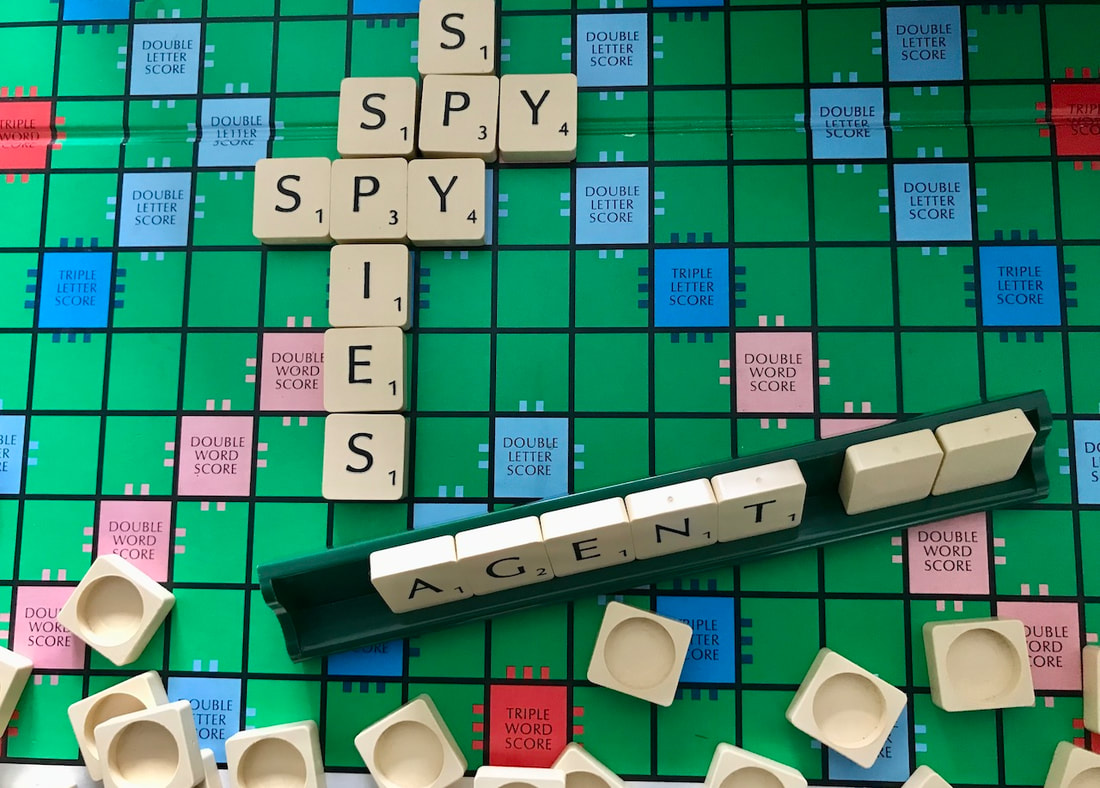
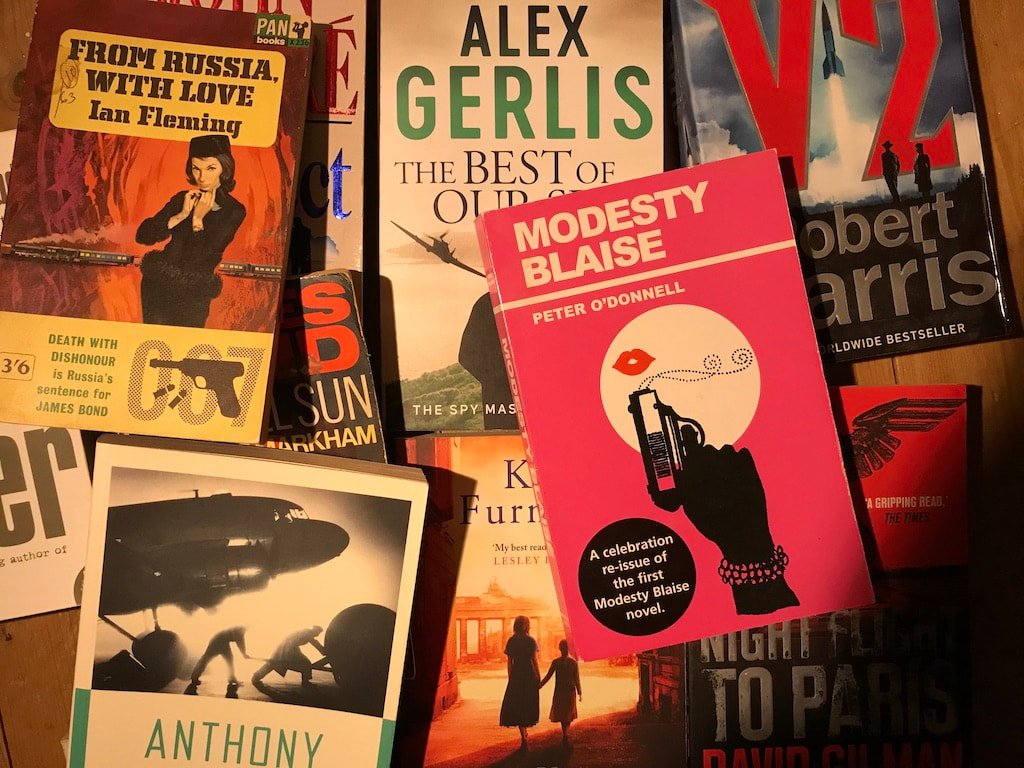
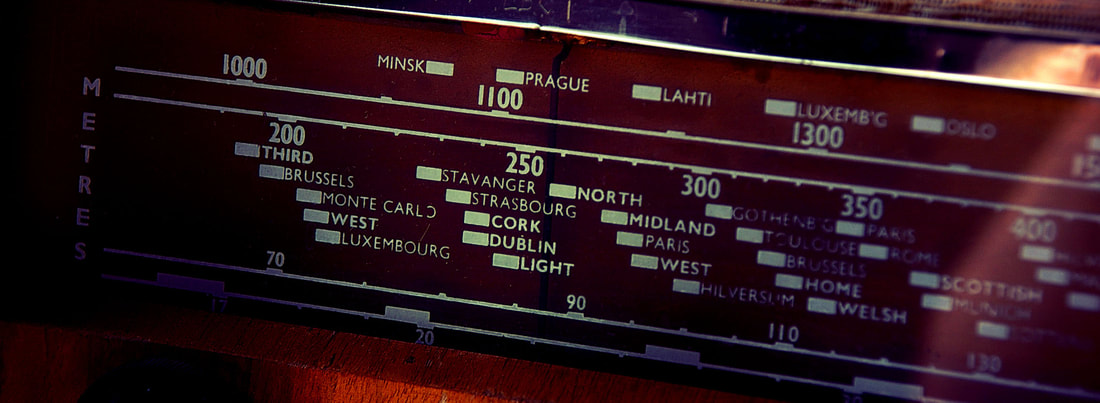
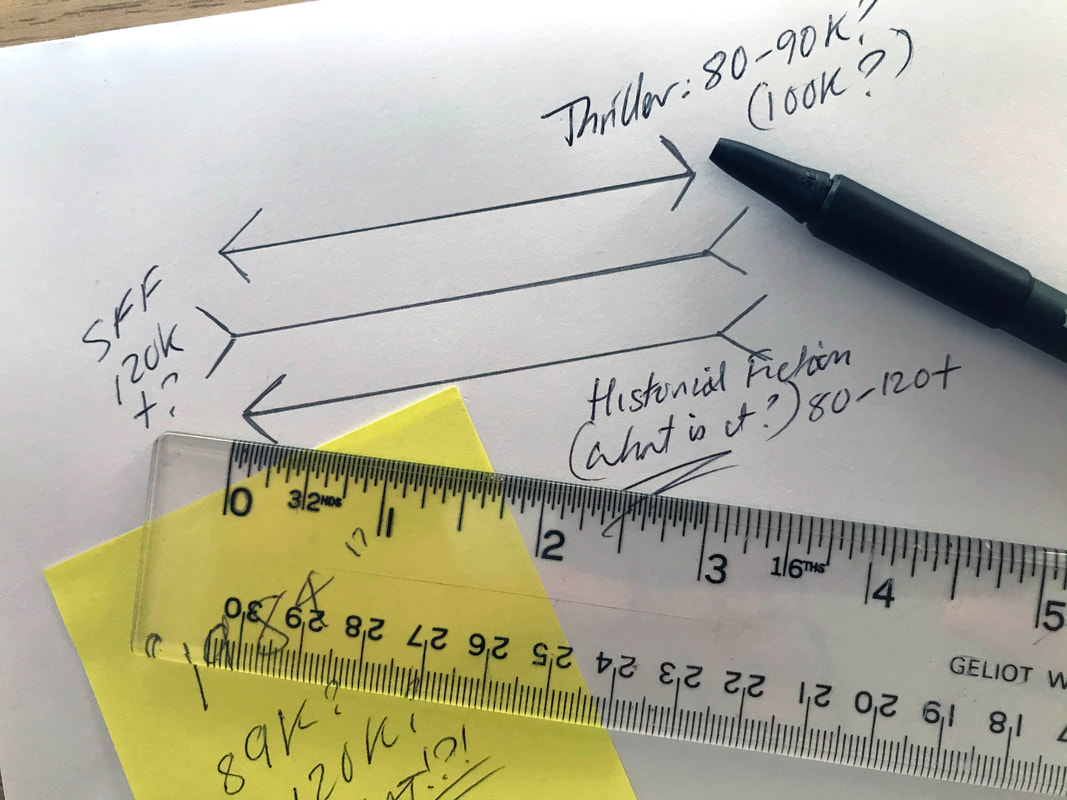
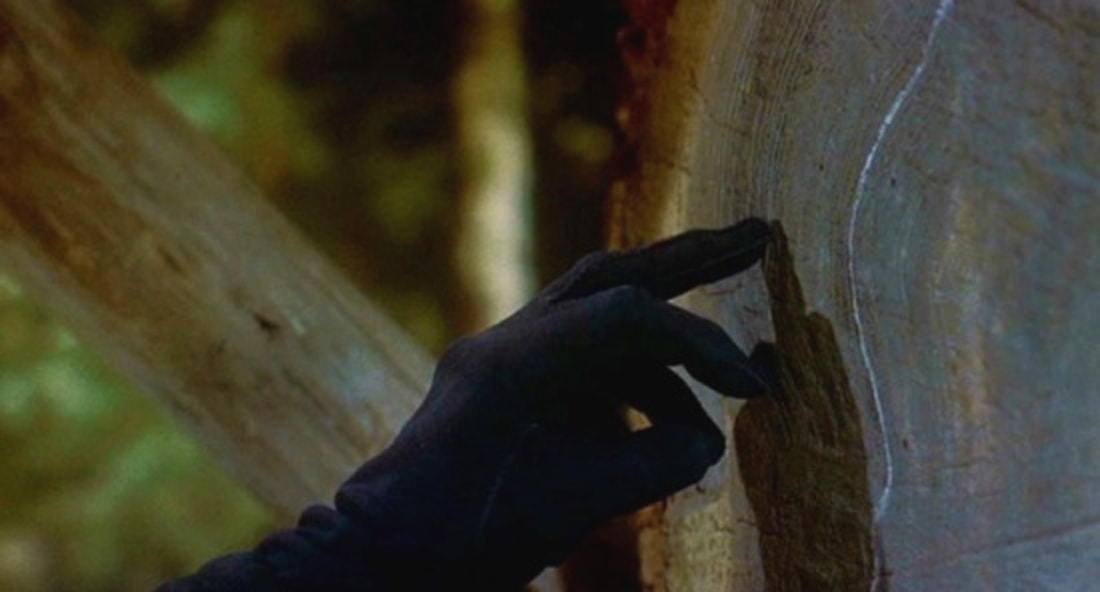

 RSS Feed
RSS Feed